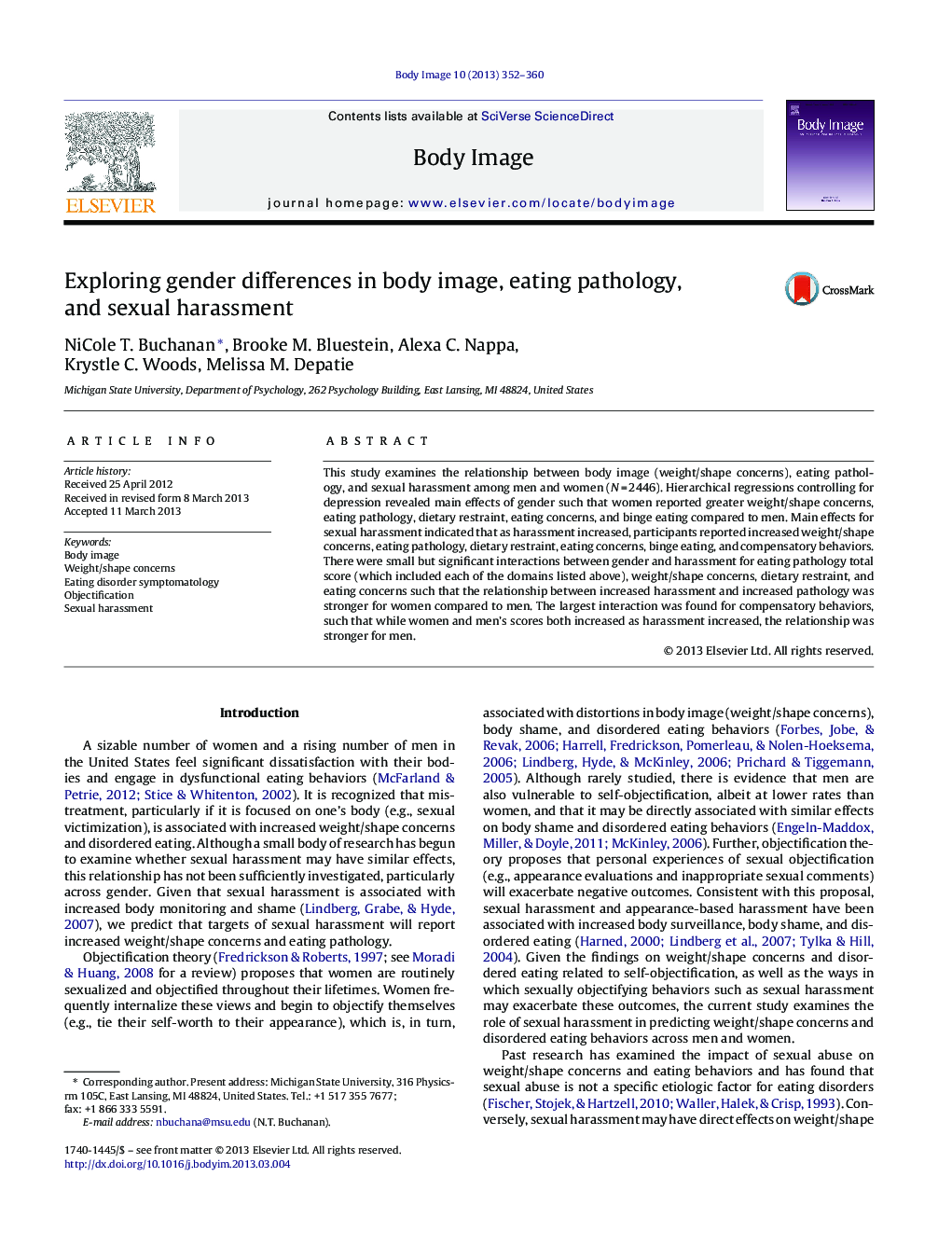| Article ID | Journal | Published Year | Pages | File Type |
|---|---|---|---|---|
| 902977 | Body Image | 2013 | 9 Pages |
•We examine sexual harassment, weight/shape, and eating concerns across gender.•Sexual harassment is associated with more weight/shape and eating concerns.•Gender and harassment interact to predict weight/shape and eating concerns.•The relationship between compensatory behaviors and harassment is stronger for men.•This relationship was stronger for women than men for all other criterion variables.
This study examines the relationship between body image (weight/shape concerns), eating pathology, and sexual harassment among men and women (N = 2446). Hierarchical regressions controlling for depression revealed main effects of gender such that women reported greater weight/shape concerns, eating pathology, dietary restraint, eating concerns, and binge eating compared to men. Main effects for sexual harassment indicated that as harassment increased, participants reported increased weight/shape concerns, eating pathology, dietary restraint, eating concerns, binge eating, and compensatory behaviors. There were small but significant interactions between gender and harassment for eating pathology total score (which included each of the domains listed above), weight/shape concerns, dietary restraint, and eating concerns such that the relationship between increased harassment and increased pathology was stronger for women compared to men. The largest interaction was found for compensatory behaviors, such that while women and men's scores both increased as harassment increased, the relationship was stronger for men.
